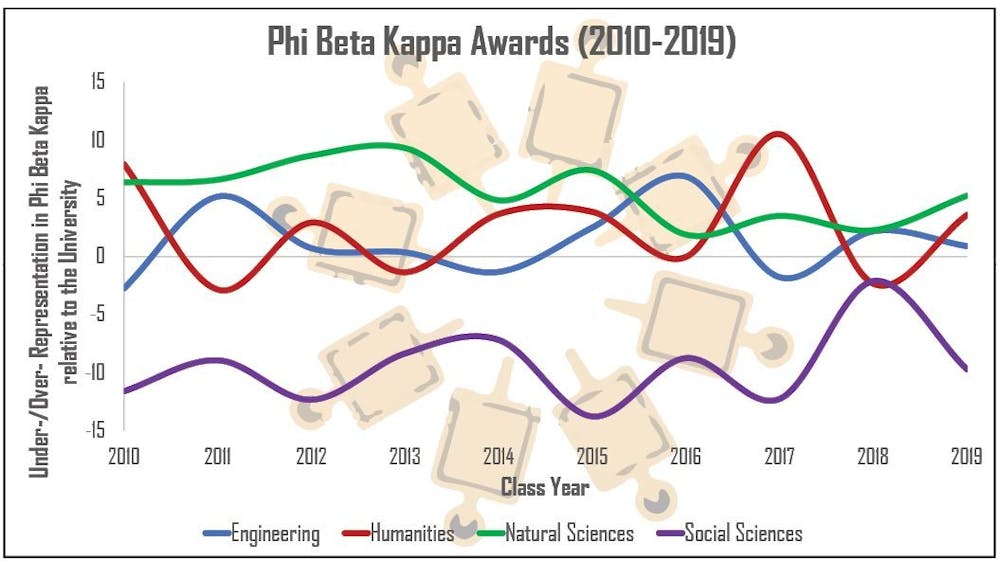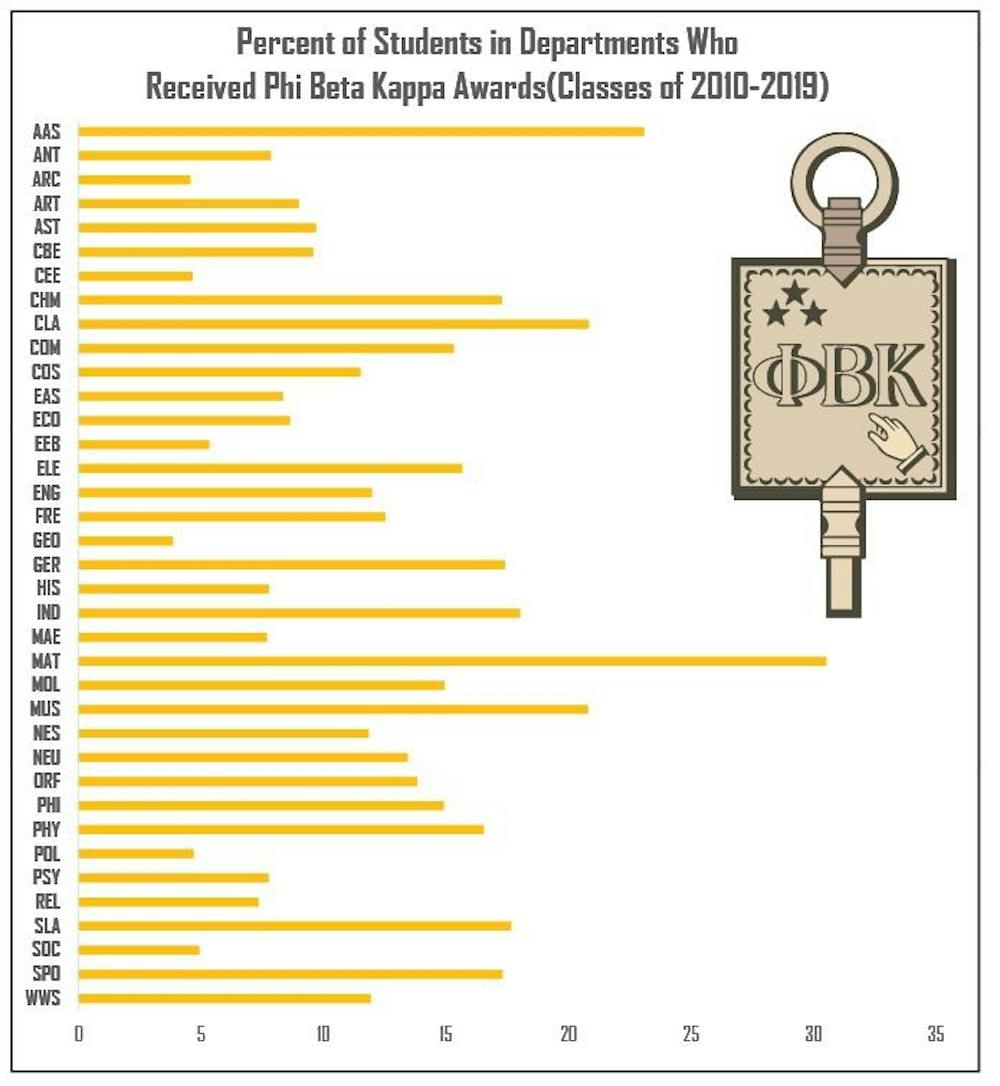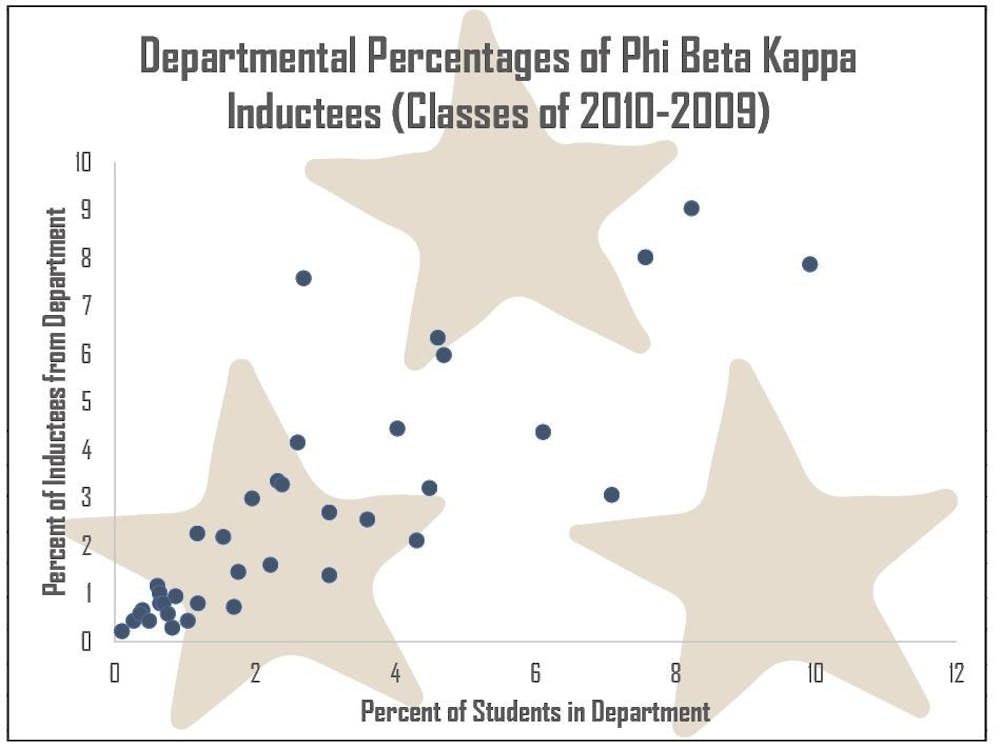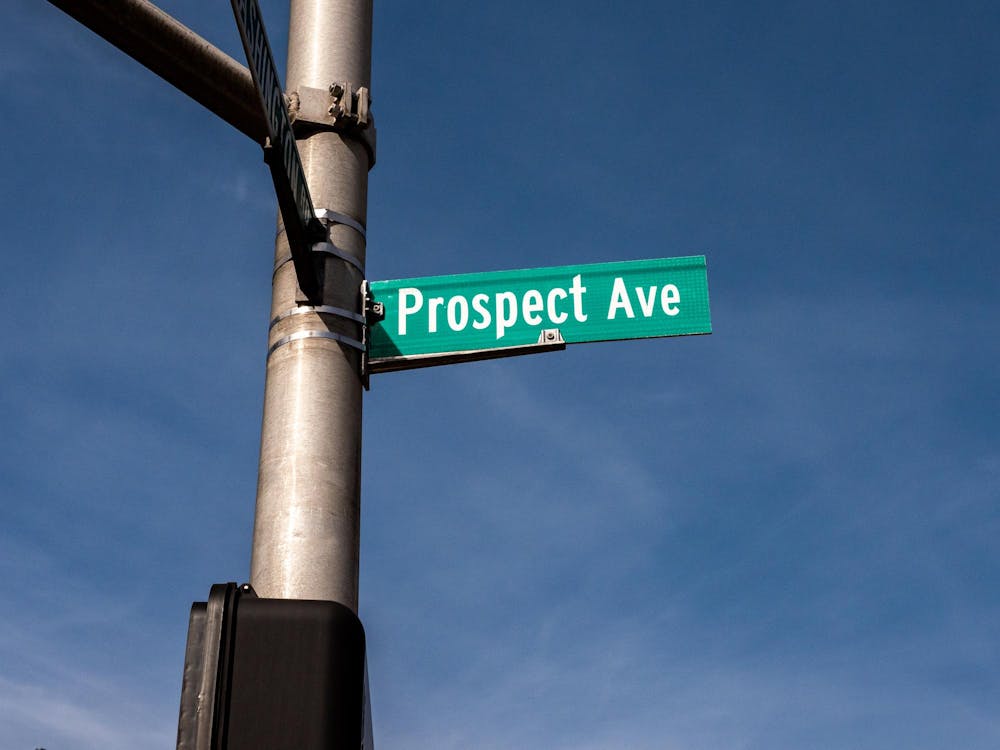Few things can pull a Princetonian out of bed before 9 a.m., but induction into Phi Beta Kappa is one of them. Each year, in the early hours of Class Day — 8:45 a.m., to be precise — about 140 seniors join the nation’s oldest and most prestigious academic honor society.
While its motto is “Love of learning is the guide of life,” a cheeky Princeton parody could read, “Love of science is the guide to Phi Beta Kappa.” From Commencement programs, I compiled a list of the approximately 1,350 seniors who have joined Phi Beta Kappa over the past decade. Using publicly available graduation data, I tracked which departments had their students inducted most frequently.
Everyone has a shot at reaching the top during their four years of college. But that doesn’t mean all majors have the same odds of getting there.
The natural sciences departments had only 23 percent of all students in the Classes of 2010–19, but they made up 29 percent of Phi Beta Kappa inductees. On the other hand, social sciences comprised the most underrepresented division. Although 37 percent of undergraduates studied in those fields, they comprised just 28 percent of the honor society’s members.

Graphic Credit: Harsimran Makkad / The Daily Princetonian
More than a quarter of Princeton’s math students entered Phi Beta Kappa — a rate two and a half times above the University-wide average. African American Studies wasn’t far behind, with 23 percent of its students being chosen. It was trailed by Music (19 percent), Classics (19 percent), Independent Concentrators (18 percent), and Slavic Languages and Literatures (17 percent).


Photo Credit: Harsimran Makkad / The Daily Princetonian
At the bottom, less than four percent of Geosciences majors got in. Five other departments didn’t surpass five percent: Politics, Architecture, Civil and Environmental Engineering, Sociology, and Ecology and Evolutionary Biology.


Photo Credit: Harsimran Makkad / The Daily Princetonian
Phi Beta Kappa members come from the highest ranking 10th of each graduating class, defined by their grade point averages (GPAs). In addition, the organization’s website specifies that members must excel in the liberal arts, with weight given to the “breadth and depth” of the classes; have learned a foreign language; taken a math or logic course; and be “persons of good moral character.”

There wasn’t a clear-cut relationship between departments’ course GPAs and the frequency at which their students were inducted. The data formed a U-shaped pattern. Students majoring in the highest-grading departments were selected most often, but so were those in several of the lowest. The trend can partially be explained by the way undergraduates in some of the harshest-grading departments quickly reach higher-grading advanced courses — especially in science and engineering.
Almost half of Phi Beta Kappa members have won a Shapiro Prize — an award given to three percent of underclass-students for their academic performance. Conversely, 88 percent of Shapiro Prize recipients were inducted into Phi Beta Kappa. Departments whose students won Shapiros most often also had the highest rates of induction into the honor society, showing a near-linear relationship. These results indicate that a class’s upper echelons are relatively stagnant. Students reach the top of the academic rankings early in their college careers and then hold their lofty positions until graduation.
Compared to the Shapiro Prize, academic representation was more evenhanded in Phi Beta Kappa. Plots comparing the percentages of students majoring in a department and the percentages of inductees from each department displayed a nearly linear trend for the latter distinction but a scattered blob for the former.
These patterns are likely to be — at least in part — the result of departmental grading practices. I predict that science and engineering majors have a disproportionate share of the highest GPAs — say 3.9 or better — because their subjects allow students to consistently score on the upper ends of grading curves. The humanities — and many social sciences — are subjective, so it’s harder to achieve perfect scores. But they grade more generously on average, meaning that their students should outnumber science majors among generally good — though not extraordinary — GPAs, say around 3.85.
Deputy University Spokesperson Michael Hotchkiss wrote in an email that a faculty committee of Phi Beta Kappa members meets semiannually to review seniors’ academic records and invite students for induction.
“Committee members from across the divisions are attentive to University-wide grading trends, regularly discuss the complexity of the issues involved, and take seriously all concerns about equity and fairness,” he said.
There are substantial perils to awarding anything by GPA. In my January column, I revealed that there are large grading disparities between subjects. It shouldn’t be surprising that students from the departments that give the most A’s were some of the likeliest to be in the top 10 percent of their classes, when the “top” is defined by GPA.
No selection method will be foolproof. But grading differences are almost certainly having an influence on the present process. It should be changed if Phi Beta Kappa is to have any meaningful value.
Relying upon professors’ individualized judgements should be an appropriate substitute for raw GPA. Departments could be allocated a specific number of Phi Beta Kappa slots proportional to the fraction of the graduating class that they educated.
If the faculty of a particular department feels that there aren’t enough “worthy” students to fill their allotted slots, then those extra slots can be sent to another department that can. It might also be beneficial to put an emphasis on performance in independent work.
Commencement — assuming it’s not cancelled this June — is a time to celebrate seniors’ accomplishments from their previous four years. Let’s modify the Phi Beta Kappa process so that anybody has a fair shot at having to wake up early on Class Day. I fear that it is currently giving too much recognition to what Princetonians chose to study, instead of how well they studied.
This is the second column in a series examining the outcomes of academic awards.
Liam O’Connor is a senior geosciences major from Wyoming, Del. He can be reached at lpo@princeton.edu.







